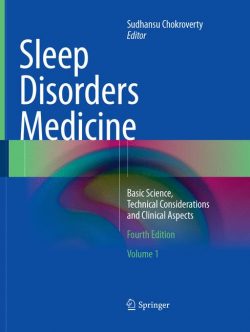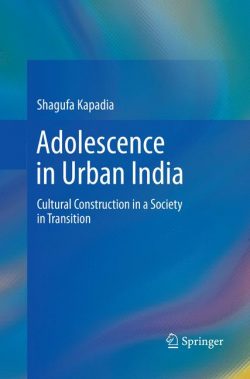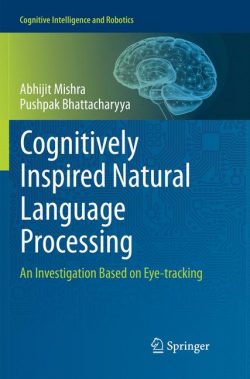This volume discusses the need for a major paradigm shift in educational practice in the current digital and globalized world. It establishes a bridge between theory and praxis and revisits the objectives of learning and its modalities within the context of a rapidly evolving global world order. This volume includes perspectives from different countries on creating a dynamic and adaptive education system that encourages creativity, leadership, flexibility, and working in virtual as well as inclusive environments. The four sections include chapters that discuss creating meaningful learning environments, preparing teachers for new age classrooms, the digital learning space, fostering change in classrooms, and importantly also includes cases and experiments from schools. The authors are teacher educators, teachers and researchers, and each chapter, while being deeply rooted in theory, is juxtaposed with informed practice, making the suggestions easy to implement in different settings. This is an important resource for researchers and practitioners associated with education systems in creating engaging, meaningful and future-ready education practices.
1. Dynamic Learning Spaces in Education Veena Kapur and Sudipta Ghosh.- Part 1: The Digital Learning Culture: Potential and Possibilities.- 2. e-Learning Culture: From Theory to Practice Genny Villa.- 3. Deconstructing Teacher Education – Technology and the Intern Veena Kapur.- 4. Technology Integration in Language Teaching: A Negotiated Terrain Nidhi Seth.- Part 2: The New Age Classroom and its Teaching Strategies.- 5. Engaging the Student- Redesigning Classrooms for Project Based Learning Sujata Sriram.- 6. Facilitating Cooperative Learning: A Study of a Mathematics Classroom in IndiaVandana Ghai.- 7. Errors as Learning Opportunities: Cases from Mathematics Teaching Learning Alprata Ahuja.- 8. PCK – A Key to Meaningful Learning in Classrooms- A Case for Science Teaching Mamta Rajput.- 9. Reflective Practices: Exploring Teacher Educators’ Perceptions Manisha Yadav.- 10. Changing Times: The Need for Pedagogical Reforms to Foster Life Skills Neema Chaurasiya.- 11. Redesigning the School Classroom: A Case Study of Mirambika Nitika Bose and Deepika Bansal.- Part 3: Social Justice and Inclusive Practices.- 12. Cracks and Crevices in the Education Firmament: Bridging the Gap Sudipta Ghose.- 13. Unlocking Giftedness: An Introduction to Giftedness for Teachers in India Inderbir Kaur. 14. Exploring Pedagogy from a Human Rights Perspective Sandeep Kumar.- 15. Researching in Multilingual Settings: The Dilemma of the Mother Tongue Shilpy Raaj.- Part 4: Voices from the Field.- 16. Rivers and Fireworks: Social Constructivism in Education Anita Charles.- 17. Heterogeneity and Dynamism in Indian Classroom Toolika Wadhwa.- 18. The Ethics of Inclusion Geeta Kumar.- 19. The Blended Classroom in Language Teaching: A Perspective on the Significance of Technology Swati Sehgal.- 20. Teacher Perceptions: The Importance of Being a Reflective Practitioner Richa Dang.- 21. Childhood: Theoretical Perspectives and Lived Realities Mansi Aneja.
“The book offers a good grounding for educators ‘who are committed to the profession of teaching, imbued with theoretical insights, practical understanding, and the ability to adapt to changing times’ … and will definitely be of value for those who look for quality discussion on the varying facets of education and its contemporary challenges.” (Alevtina Sedochenko, Journal of Applied Learning & Teaching, Vol. 2 (2), 2019)
Veena Kapur is an Associate Profressor in the University of Delhi and has over thirty seven years experience as a teacher educator. An alumna of the University of Delhi, Kapur completed her graduation , postgraduation in English and Education as well as her doctorate from prestigious colleges and departments of the University of Delhi. She is a Delhi University Gold Medalist, having stood first in the M.ED examinations and receiving Vice Presidents Gold Medal. Kapur’s areas of interest are Language Teaching, Women’s Studies and Technology based language teaching. Her research is related to these areas, having presented research papers at renowned national and international fora. Kapur, has collaborated with Tata McGraw Hill, Access and Bookline publishers, in producing resource books and academic publications. She is a member of International Association of Teachers of English as a Foreign Language (IATEFL) and A Journal of Teaching English Language and Literature (FORTELL).
Sudipta Ghose is Associate Professor in the University of Delhi. She has Masters in Physics and Education and Ph.D. in Education. She has over forty years of college teaching experience, including one semester of teaching graduate classes in Utica College, Utica, New York, U.S.A. Ghose has presented papers in international conferences in Cyprus, Greece, Poland and Australia. She has publications in reputed journals and is member, management committees of many schools of a leading chain of schools in India.
This volume discusses the need for a major paradigm shift in educational practice in the current digital and globalized world. It establishes a bridge between theory and praxis and revisits the objectives of learning and its modalities within the context of a rapidly evolving global world order. This volume includes perspectives from different countries on creating a dynamic and adaptive education system that encourages creativity, leadership, flexibility, and working in virtual as well as inclusive environments. The four sections include chapters that discuss creating meaningful learning environments, preparing teachers for new age classrooms, the digital learning space, fostering change in classrooms, and importantly also includes cases and experiments from schools. The authors are teacher educators, teachers and researchers, and each chapter, while being deeply rooted in theory, is juxtaposed with informed practice, making the suggestions easy to implement in different settings. This is an important resource for researchers and practitioners associated with education systems in creating engaging, meaningful and future-ready education practices.
Provides comparative views on dynamic learning spaces through discussions from different countries
Creates balance between theoretical discussions and practical implementation
Includes voices from the field discussing interesting case studies





